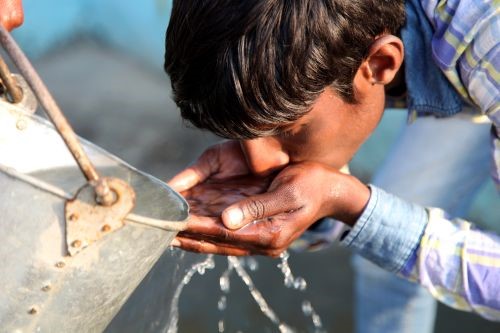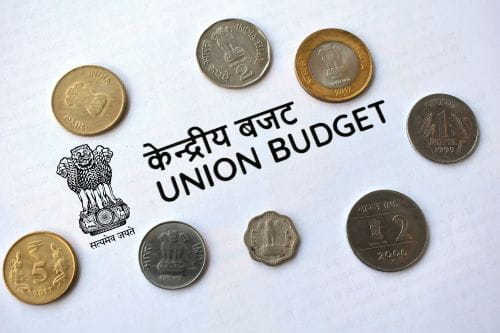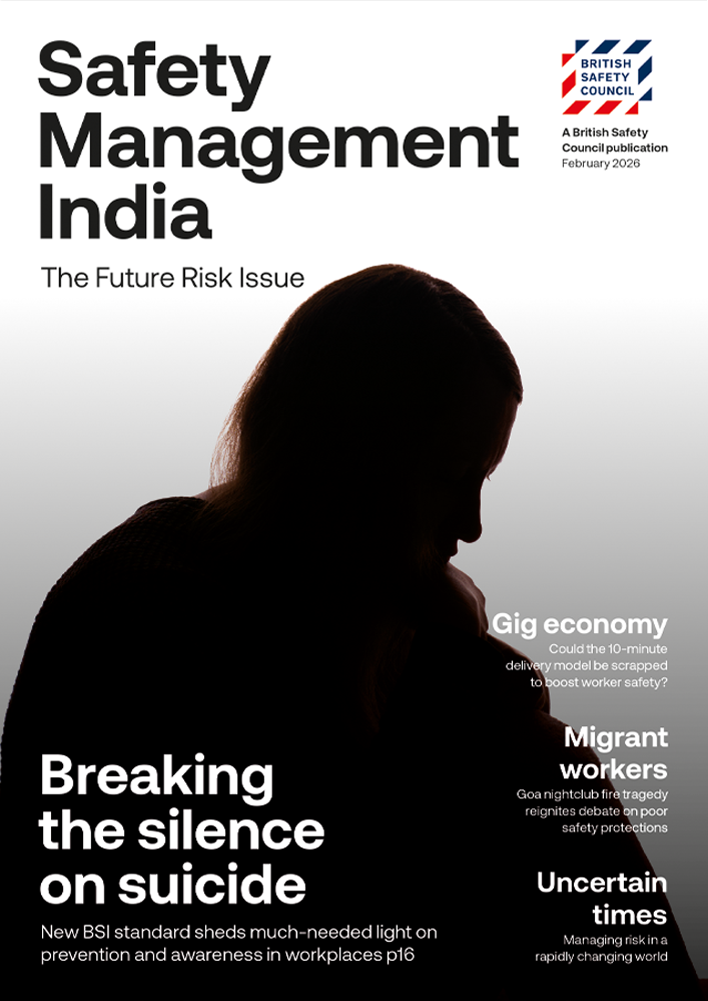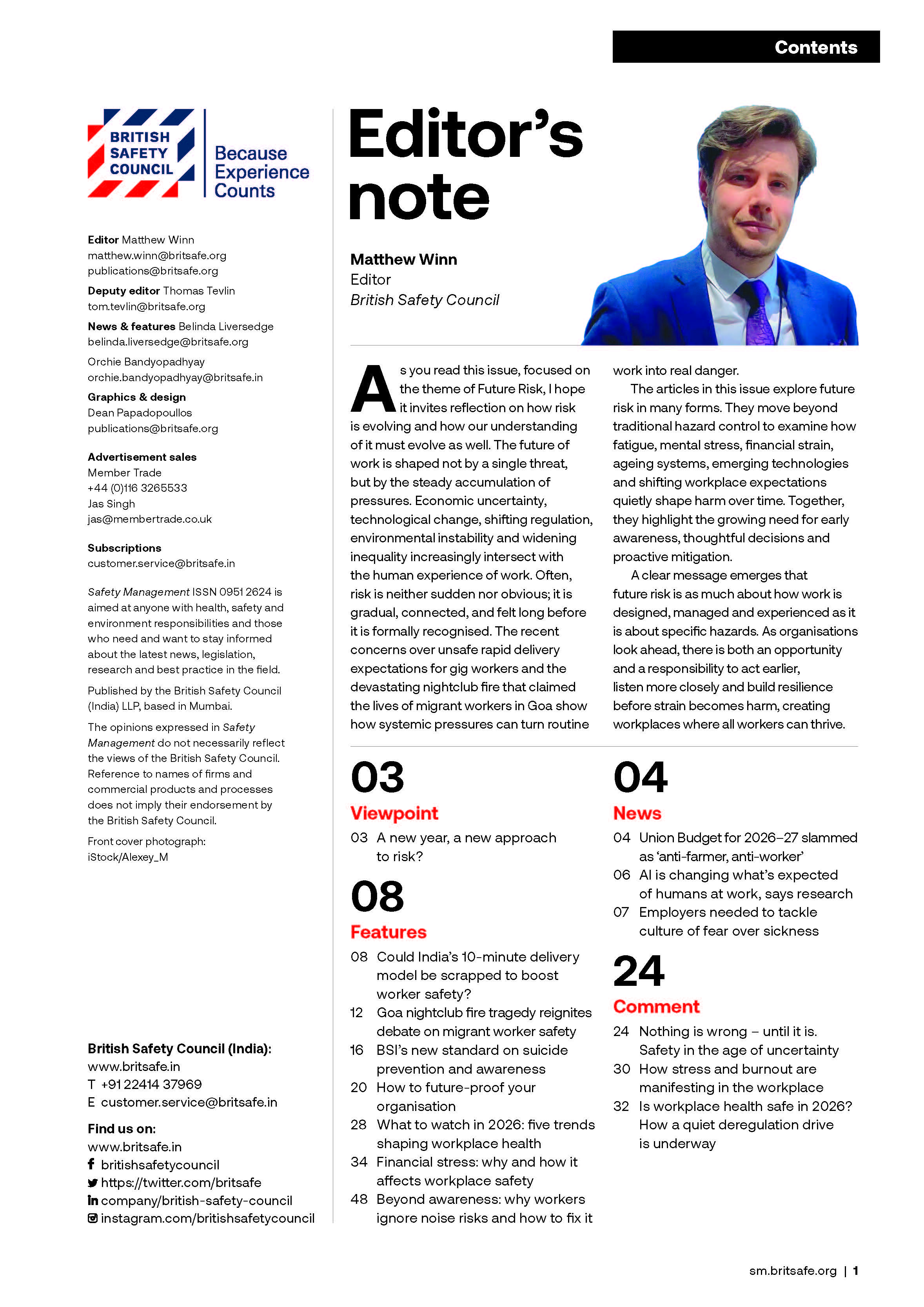With rising temperatures threatening both productivity and worker safety in many sectors of Indian industry, the central government’s Ministry of Labour and Employment has issued an urgent advisory note instructing all States and Union Territories (UTs) to take measures to protect workers and labourers in a range of sectors from the health impacts of extreme heat.
News
Take steps to protect workers from heatwaves, Union Government tells States and UTs
In a letter to chief secretaries and administrators of all States and UTs sent on 22 April, the Secretary of the Labour and Employment Ministry stressed the importance of local government officials taking a “coordinated, multi-sectoral approach”, and immediately issuing directions to employers and those in control of workplaces in a variety of industries to take the “necessary steps to mitigate the adverse effects of extreme heatwaves on workers and labourers”.
The letter urged States and UTs to inform employers to take a variety of measures to protect worker wellbeing following the onset of high temperatures across much of the country. These include rescheduling working hours, providing adequate drinking water facilities, improving ventilation and cooling of workplaces, setting up rest areas, conducting regular health check-ups for workers exposed to high temperatures and providing emergency ice packs and heat illness prevention materials to workers in sectors such as construction.

Public awareness campaigns
The letter also instructed States and UTs to ask factory and mine managers to adopt measures such as a slower pace of work, flexible schedules and two-person crews to allow workers to alternate their time in the sun and high temperatures.
It also called on local governments to pay “special attention” to the risk of heat stroke and dehydration among construction and brick kiln workers, and to launch widespread public awareness campaigns to educate workers on the dangers of high temperatures and ways of protecting themselves from the risks. The campaigns should take the form of public awareness stalls, posters and banners, including at labour ‘chowks’ – public areas where labourers gather in search of daily wage employment from contractors and employers.
The Labour Ministry also directed agencies under its control – such as the social security agency Directorate General Labour Welfare (DGLW) and the Directorate General of Mines Safety (DGMS) – to hold awareness sessions and integrate dedicated modules into their training programmes to educate workers on the health impacts of high temperatures, how to recognise the signs of heat stress and ways to mitigate the health risks from working in heatwaves.
Hospitals and dispensaries that provide healthcare services to workers covered under social security schemes, such as DGLW and the Employees’ State Insurance Corporation (ESIC), have also been asked to set up dedicated desks to take care of any heat stroke cases and ensure an adequate supply of materials for reducing the risk of heat-related illness, such as ice packs.
Arrival of high temperatures
The move follows the arrival of high temperatures across large swathes of India, with Delhi experiencing temperatures of 41°C in early April.
The advisory note from the Union Labour Department was issued shortly after the Central Government directed all States and UTs to review the readiness of their healthcare facilities for managing heatstroke cases and other heat-related illnesses.
In a letter on 27 March, Union Health Secretary Punya Salila Srivastava warned that with the onset of summer, the country’s population is facing increasing exposure to extreme heat. She highlighted that some regions are already experiencing high temperatures and stressed the need for health facilities to improve their heat resilience planning and precautions.
The minister called on healthcare facilities, such as hospitals and clinics, to implement a variety of measures, such as ensuring uninterrupted power supplies for cooling systems – for example, by installing solar panels where feasible to power air conditioning plant and fans. The minister also instructed the healthcare sector to take steps to reduce and mitigate temperatures and humidity levels inside buildings, such as by fitting shades to windows and creating ‘green’ roofs with plants to absorb heat generated by direct sunlight.
The Ministry of Health and Family Welfare also stressed the importance of health facilities ensuring they have sufficient stocks of materials such as essential medicines, intravenous fluids, ice packs and equipment for active emergency cooling.
Minister Srivastava added that the healthcare sector should explore the feasibility of setting up rainwater harvesting and recycling systems to ensure the self-sufficiency of their water supplies.
Risks to skin health
Meanwhile, dermatologists have issued a reminder that heatwaves and high temperatures can have a severe impact on skin health, including among outdoor workers. Dr Krishna Deb Barman, director of the Department of Dermatology at Maulana Azad Medical College in Delhi, says that, as well as the risk of sunburn from exposure to the sun’s harmful UV rays, excessive heat can cause the skin to become warm and trigger allergic reactions.
“Increased sweating can cause allergens to stick to the skin, triggering conditions like contact dermatitis,” says Dr Barman. The professor, who specialises in skin health, added that humid conditions and sweating create an ideal environment for bacterial infections (such as impetigo, folliculitis, and boils) and fungal infections (like tinea cruris in the groin area and tinea corporis on the trunk).
“Fungal infections are commonly observed among outdoor workers, particularly Tinea cruris,” says
Dr Barman. “In children, bacterial infections such as impetigo contagiosa are frequently reported.”
Also, high temperatures and strong sunlight can aggravate serious health conditions such as lupus, he warned.
Dr Barman’s heatwave skin safety tips include:
- Stay indoors as much as possible during peak heat hours
- Maintain good hygiene by bathing regularly with water at normal temperature and using regular soap (avoid medicated soaps unless prescribed)
- Wear protective clothing such as full-sleeved garments and a cap or hat when stepping outdoors
- Consult a dermatologist if skin issues persist or worsen.
NEWS

Manufacturers call for full implementation of Mayfield Review to tackle UK sickness crisis
By on 26 February 2026
Trends in wellbeing and long-term ill health are “worsening with the size of the problem growing, not shrinking,” the UK’s manufacturing association Make UK has warned.


Union Budget for 2026–27 slammed as ‘anti-farmer, anti-worker’
By Orchie Bandyopadhyay on 13 February 2026
The Union Government’s claim its 2026–27 Budget will improve the lives of the “poor, underprivileged and the disadvantaged” has been met with sharp criticism, with opposition parties claiming the announced measures fail to tackle deep-rooted problems such as youth unemployment, falling standards of living in the agricultural community, and inadequate salaries for key public health workers.



